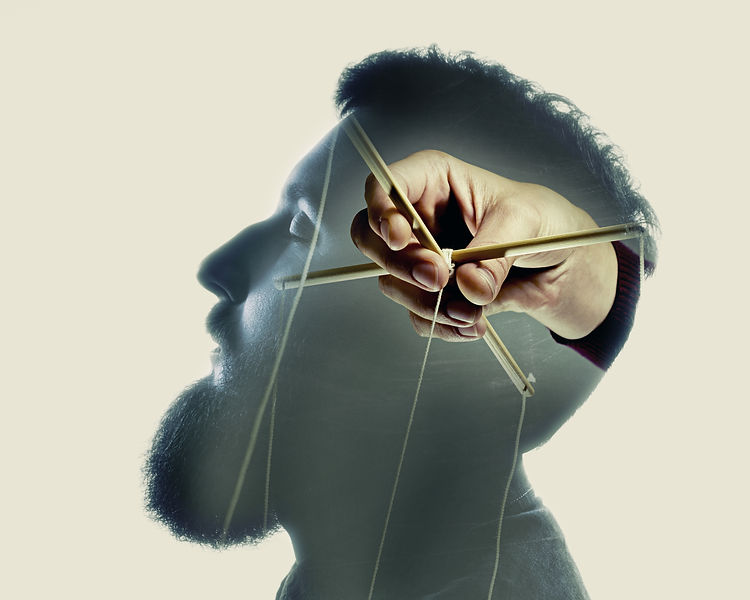
Cults


What Is a Cult?
Wonder if you might be in a cult? Confident that you are not? Some cults show dangerous intent upfront, requiring harmful or illegal initiation rites. Most destructive groups appear far more appealing, with unhealthy traits slowly revealed over time.
We think therapist Roseanne Henry said it best when she wrote on her website Cult Recover: "When ex-members had been polled (at ICSA Recovery Workshops) they consistently gave these reasons for joining their groups: Idealism, Friendship, Love, Freedom, Community, Mission, Sincerity, Salvation, Enlightenment, Spiritual high.
People don’t join cults. They get involved in groups they are led to believe represent these high ideals."
Let's set aside the task of defining what a cult is and instead focus on recognizing how cultic groups operate.
The following questions are adapted from a checklist developed by Michael D. Langone, Ph.D., Executive Director of International Cultic Studies Association (ICSA). This list is not a diagnostic tool. It is only meant to help you analyze for yourself whether you may have cause for concern based on common patterns found in cultic groups.
• Does your group show unquestioning commitment to its leader, alive or dead?
• Are doubts and questions discouraged or punished?
• Are mind-altering techniques such as meditation, chanting, speaking in tongues, and sleep deprivation or overworking used in excess (which, unwittingly or not, often serve to suppress doubts about the group and its leadership)?
• Does the leadership dictate how members should think, act, and feel? How they should dress, where they should live, and whom they should marry?
• Does the group feel they’re on a special mission to save humanity? Do they see their leader as a special being or an avatar?
• Does the group have an us-versus-them mentality?
• Does the leadership induce feelings of shame or guilt in order to influence or control members? Often this is often done through peer pressure and subtle forms of persuasion.
• Does the group require members to cut ties with family and friends, or to radically alter the personal goals and activities members had before they joined?
• Is the group preoccupied with bringing in new members and/or making money?
• Do you fear backlash to yourself or others if you leave—or even consider leaving—the group?
If you answered 'yes' to some of these questions, it does not automatically mean you are in a cult. We acknowledge the subjectivity of words like "excessive" and "radical." What's considered excessive one person may seem like not enough to someone else. Trust yourself. What's true for others does not have to be true for you.
Where Is the Line Between Destructive and Healthy?
That line may be different for every person. You are the one responsible for you. It's important to emphasize that not all groups are harmful. Sometimes it's hard to distinguish whether a religion or organization is destructive or not. There is what Steven Hassan, leading cult expert and founder of Freedom of Mind Resource Center, calls an Influence Continuum, a spectrum of healthy and unhealthy influence:

The author of Combating Cult Mind Control: The Guide to Protection, Rescue and Recovery from Destructive Cults adds that, "Individual experiences vary within the same organization based on how the individual conforms to the norms of the group. For example, a lesbian teen in a homophobic church will be subject to a different degree of undue influence than a straight man who is married with children in the same church."
Again, we reiterate: Not all churches, religions, and organizations are cults. Expressions of these groups, however, can be cultish. Instead of focusing on the faith, ideology, or belief system of a group, focus on the behavior of the people involved. Don't disregard your feelings. Determine for yourself whether the group is healthy FOR YOU.
We have tried to make finding help simple and straightforward. For this reason, the following resources are not an exhaustive list. Many organizations exist to help people detach and recover from destructive groups. We've included the ones we've personally reached out to, whose sites are easy to navigate and whose responses are prompt. If you'd like to be added to our resource network, please contact us!

5 Tips for Leaving a Cult
It can be scary leaving a group that may have once felt like family. Maybe you relocated to live with them or gave up your job and all your finances. Maybe the group is all you've ever known. If starting over sounds overwhelming, it's okay. Take one step at a time. Here are five to get you started from people who left cults themselves:
1) Make a plan. If you need somewhere safe to go, reach out to a family member or friend outside the group. Say you need help. Ask them to come get you or find the best way to get to them. If you don't know anyone outside the group, find out where the nearest local police station or domestic shelter is and how to get there. Notice any bus stops nearby. Just get on a bus if you need to. Call a cab if you can. If you fear you will be in danger for leaving, the important thing is to just leave however you can.
2) Pack a go-bag. You may need to leave at a moment's notice. Try to have a bag or backpack ready with a change of clothes, food, and filled water bottles, unless you're afraid the bag might be discovered. Be prepared for an opportunity to leave by keeping money and a cell phone on you if you have them. Wear sturdy shoes.
3) Don't tell anyone you're leaving. They may try to talk you out of it, block you, or report your plan to others. Keep your doubts and intentions a secret. Try to go about your business as usual to avoid suspicion.
4) Reach out to others who have left. Talking with others who have left your group can help encourage and validate your decision to leave. They might even be able to help you. Try finding them on Facebook or through friends and family they may have mentioned. Read stories of other ex-members for encouragement and validation in online support forums. Use public library computers if you can to avoid your search history being discovered.
5) Get professional counseling. There are therapists and experts specializing in cult recovery who want to help you. Many were once cult members themselves. Say you are in a destructive group and need help leaving. They will help you find safety, learn how to filter harmful programming from your own truth, and give you tools to rebuild a life for yourself outside of the group. You'll find recovery organizations and therapists on this page.
Leaving a high-demand group often isn't easy. Remember the reasons you doubt or distrust them. Remember YOU are the one looking out for YOU. You are not an idiot or a traitor. You're a human being deserving of freedom, safety, and support. If you need immediate assistance, like a safe place to stay, see our Crisis Care.
Watch artist and filmmaker Taryn Southern interview

Cult Recovery Resources
Leaving is the first step. Recovering is another. If you know or suspect you were/are in a destructive group and you need help, or if you're seeking help for a loved one, see our list of resources below. There are professionals and peers who want to help you make sense of what happened and recover and rebuild your life. Freedom is possible.
Freedom of Mind Resource Center ~ For over 40 years, founder Steven Hassan has helped individuals and families leave and recover from destructive groups and relationships. Steven knows cults. He's an ex-member himself. Freedom of Mind offers services to help you or help a loved one get out of a controlling situation and heal from the effects of undue influence and brainwash.
International Cultic Studies Association ~ The ICSA is a hub of information for people recovering from or learning about cults. They offer workshops for those born or raised in cultic environments and have an active YouTube channel with helpful videos for ex-members, their loved ones, and mental health professionals alike.
Spiritual Abuse Resources ~ SAR (run by ICSA) offers helpful information for individuals recovering from what they call Post-Cult After Effects. They also provide resources for concerned loved ones , as well as guidelines for both religious professionals , whom many ex-cult members turn to for safety, and mental health professionals, who can sometimes be ill-equipped to understand or help those fleeing spiritual abuse.
Cult Recover ~ Roseanne Henry is a therapist who has helped cult survivors for over 25 years. Read her definition of a cult here. Roseanne offers consulting for ex-cult members by phone or Skype, and if you're in Colorado, the option to meet with her in person is available as well. She also runs recovery workshops.
Hope Valley Counseling ~ UK-based Dr. Gillie Jenkinson specializes in post-cult counseling and working with survivors of spiritual and sexual abuse. She offers distinct approaches for the different needs of first and second-generation former cult members. If you're outside the UK, you can still work with her by Skype or phone.
EnCourage Survivors of Cults and Abuse ~ Therapy can be expensive. EnCourage exists to help ex-cult members get professional counseling by subsidizing the cost of therapy for those who cannot pay. They are UK-based and require that the counselors are Approved Service Providers (ASP). All are thoroughly checked and approved by EnCourage. Want to help? Donate!
If you have experienced sexual abuse, you can find resources specific to sexual trauma in Crisis Care and on our LGBTQ+ page.
Struggling with PTSD-like symptoms after leaving your group? Spiritual Abuse Resources calls these Post-Cult After Effects. You can find more resources for this on our Mental Health and Religious Trauma Syndrome pages.
Books, Articles, and Media








